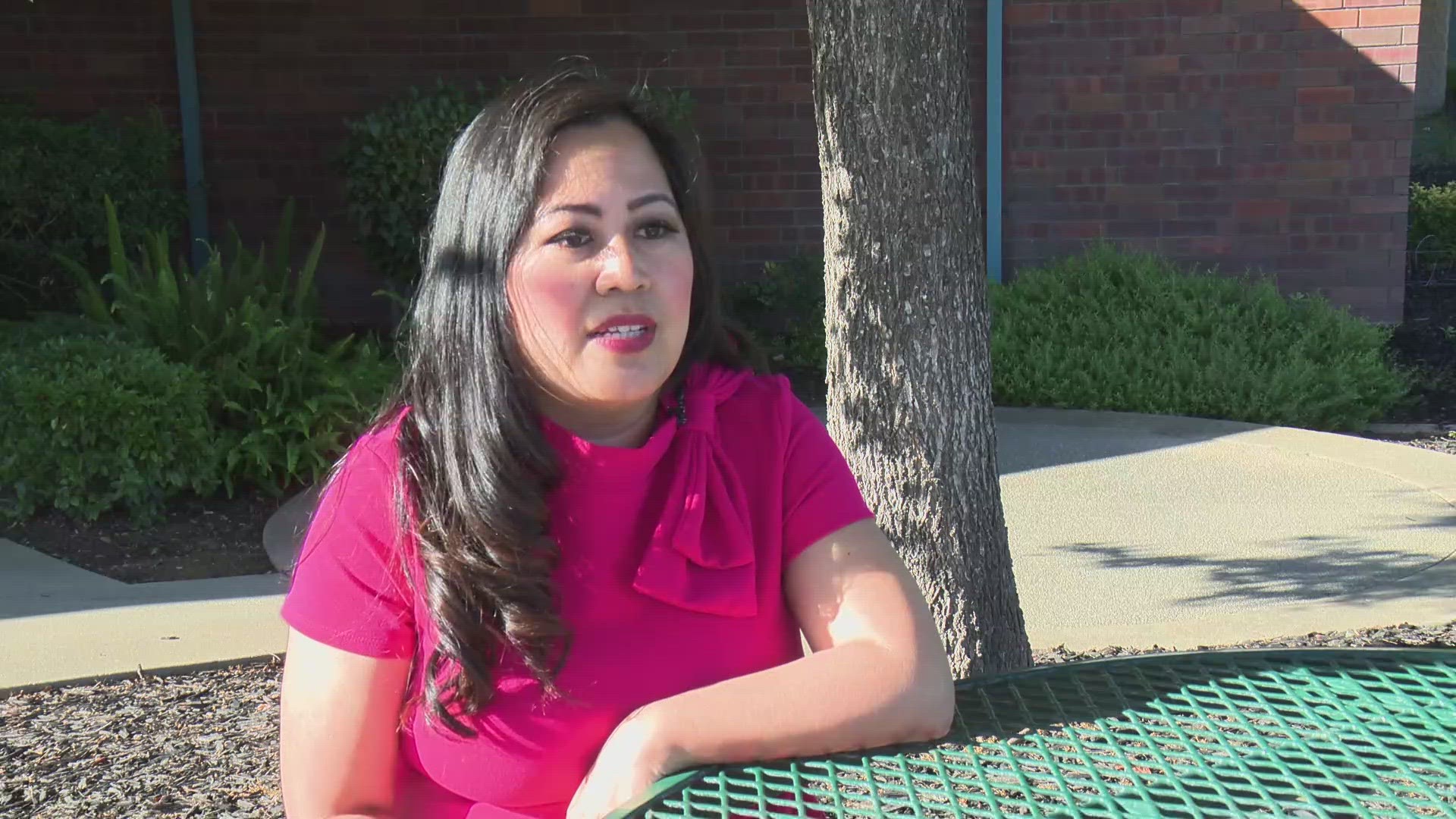SACRAMENTO, Calif. — October is Breast Cancer Awareness Month. Recently, the United States Preventative Services Task Force issued a recommendation to lower the screening age to 40 years old.
This comes after increasing reports of younger women finding themselves with a breast cancer diagnosis.
That was a reality for Sacramento survivor Maria Cobos. At 39 years old and five months pregnant she felt a lump in her breast. After testing, doctors determined it was stage one breast cancer.
"I was really afraid at that time cause I was pregnant, and I wasn't sure what was going to happen," Cobos said. "They had to do the surgery to stop the spread, they induced me early, so I had a premature baby, and right after I gave birth is when I started chemo."
She underwent six months of chemotherapy followed by radiation.
"I think the baby is what motivated me to go through this process. I actually never had side effects from chemo, and I think because I kept myself busy, didn't focus on those things," Cobos said. " I think the baby saved my life, cause if I wasn't pregnant the hormones wouldn't change, and I probably would skip the 40-year screening."
Kaiser Permanente Surgical Oncologist Dr. Brooke Vuong said she's seeing more patients under 40 with a breast cancer diagnosis.
"There's a lot of research focused on mortality, or will you survive breast cancer, but they also worry about reoccurrence and cancer coming back," Vuong said.
Vuong said the research shows the reoccurrence rate is low. Patients may need all the components of treatment, but Vuong said many women who have this disease go on to live long and fulfilling lives. She wants women to know they have a right to breast conservation. You don't always need a double mastectomy.
"I think for young women specifically, they have a lot of unique issues that could be fertility, they're in their childbearing years, financial toxicity, they're in their optimal work years, finding a partner and their self-image," Vuong said.
That's on top of the side effects of treatment. Vuong said that's where your care team comes in. Kaiser Permanente focuses on integration.
"Once you're diagnosed, really your team should come together. A team for breast cancer is not just a surgeon, right? it's a surgical oncologist, a breast surgeon, medical oncology and radiation oncology," Vuong said.
She said it could also include social work, a psycho-oncologist and more areas of specialty. For example, maternal-fetal medicine was included in Cobos' plan and a neo-natal team was present at her surgery.
Vuong wants to stress that it's important to be an advocate for yourself. If someone says the mass you're feeling is normal, watch it, make sure it's not changing and if it is, get checked again.
Cobos is cancer-free and her son is a healthy one-year-old. She said prayer got her through her journey and wants you to know you can survive too.
"I started praying and every prayer God answered, from the surgery to chemo to radiation," Cobos said. "I think prevention is the key, if you feel like something is wrong with yourself, get checked. Don't delay it."
Watch more on ABC10



















